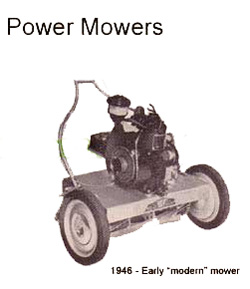 Until I was four years old, we lived next to my grandparents just south of Lake Erie in Ohio. My grandparents, Clare and Hazel, were union workers who always had some acreage under cultivation, always had a ranch house with a basement, and always had their basement full of shelves groaning under the weight of my Grandfather’s produce and my Grandmother’s canned goods.
Until I was four years old, we lived next to my grandparents just south of Lake Erie in Ohio. My grandparents, Clare and Hazel, were union workers who always had some acreage under cultivation, always had a ranch house with a basement, and always had their basement full of shelves groaning under the weight of my Grandfather’s produce and my Grandmother’s canned goods.
Whatever garden they had going was the envy of the neighborhood, and the house was always bedecked with ornamentals to go along with the food crops. The saying among my relatives was, in the idiom of the region, that “Y’ daren’t allow Hazel to touch yer fence posts, ‘less you want ’em t’ sprout and ruin yer fence.” My grandfather didn’t try to attract attention to anything he did, but he was just as talented, just as hard working.
This would have been the mid-1950s, and my grandparents were as forward-thinking as anyone in that progressive post-war period. That went for their farm and garden machinery as well. Their lawnmower, for example, was a model of post-war American efficiency. It was a reel-type mower, with a big engine and power to the wheels. It would mow the grass evenly, smoothly, and the way my grandfather kept the engine tuned, quickly.
One afternoon, my sister and I were fooling around in their yard as they tried to get something accomplished after coming home from work. My grandfather was on his tractor back in the big garden, and my grandmother was trying to get the yard mowed, but my sister and I were being needy about something, and my grandmother had come over to see what we were talking about. Just then, we heard my grandfather yelling over the noise of the tractor and the lawnmower, which she had left running, and when we turned we saw it, streaking toward one of her flower beds.
I never thought of my grandmother as a nimble lady–she was six feet tall and rather sturdily built–but she took off running after that lawnmower. The image that stays with me is her wobbling gait, the hunch of her shoulders, her elbows flying out to the sides, and her apron strings trailing out behind her. She didn’t run well, but she ran effectively, and she caught the mower just before it sliced a path through her flowers. She was able to change its course–there was no stopping it–and finally she managed to power it down and bring it to rest, disaster averted.
The same relatives who praised my grandmother’s skill in the garden and kitchen could tell just as many stories about her temper. She was the last of six children and the only girl; she had come through the Great Depression, and she was quite accustomed to struggle–and to getting her own way. My grandmother’s temper was legendary, so we expected a lengthy tirade, made all the more frustrating by the fact that she would have to delete the expletives for our benefit. Instead, she stood there beaming, laughing the biggest laugh I think I ever saw from her. She seemed fully alive at that moment–she had won the race; she had emerged the victor; and the laurels looked good on her.